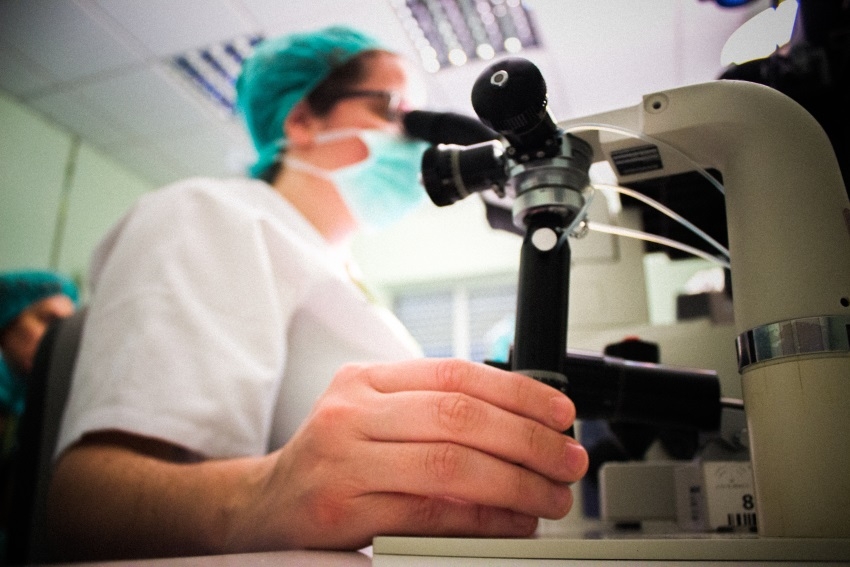Reading comprehension - Upper intermediate level
Huntington's disease is an inherited condition caused by a faulty gene in our DNA and can affect movement, learning, thinking and emotions. It is a fairly rare form of dementia which tends to get worse over a 10-25 year period after its first appearance. UK research carried out in 2012 shows that approximately 12 people per 100,000 are affected but many more people also have the Huntington's gene without yet showing any symptoms.
Unfortunately, there is not a cure for this form of dementia at the moment. However, important progress has recently been made in identifying potential means of slowing down or even arresting the condition by 'switching off' the faulty gene that causes Huntington's disease. Following on from this development, the UK Dementia Research Institute recently set up a 5 year study at UCL (University College of London - a well-respected British University) led by internationally recognised experts in Huntington's research. This programme will explore previously unknown branches of molecular research which will increase our knowledge of the disease.
The study, which is based on significant genetic evidence already produced, will focus on what role is played by specific molecules MSH3 and FAN1 in the progression of the disease. What is particularly interesting is that the research team will also examine the role of other toxic proteins and these may well be relevant for other dementias. In this way, the progress made in understanding Huntingdon's disease may also help to influence thinking on other types of dementia.
This project is the first programme of work funded by the UK Dementia Research Institute (UKDRI) which focuses on Huntington's disease. UKDRI is a joint £250 million investment from the UK's Medical Research Council, Alzheimer's Society and Alzheimer's Research UK. The institute was set up a year ago to carry out research relevant to all dementias, including Alzheimer's disease and Parkinson's disease as well as Huntington's disease. This UK national institute is to be made up of over 400 scientists carrying out a range of research programmes.
Other global developments in the field of dementia
Around the world, other developments have also been taking place. In America, philanthropist Bill Gates (founder of the Microsoft Corporation) has announced a $50 million investment in the Dementia Discovery Fund, motivated by personal experience of Alzheimer's disease in his family. Mr Gates places great emphasis on the urgency of understanding the causes of the various types of dementia because the number of people affected globally has reached the enormous figure of 50 million and is still rising. He identifies 4 priority areas to be addressed: improving dementia diagnosis, increasing participation in clinical trials, examining new ideas and theories and using 'big data' to speed up research. ('Big Data' means information which is extremely high volume, velocity and variety. It is often collected as a bi-product of social media and other digital interaction.)
Another study published in August 2017 by the American Academy of Neurology has investigated the theory that people who get less rapid eye movement sleep (REM) are at greater risk of dementia. The sleep cycle data of 321 people aged 67 from Massachusetts, USA was collected by researchers and the participants followed for 12 years. For every percent reduction in REM sleep there was a 9% increase in the risk of dementia. However, more work is needed to determine whether sleep disturbance contributes to the risk of dementia or whether the early stages of dementia actually cause the sleep problems. We also need to find out if solving sleep abnormalities can bring down the risk of dementia.
Exercise is an additional area which is under current investigation. In the same way that regular exercise has been shown to have heart health benefits, it is now thought that exercise may improve memory for people with mild forms of dementia. A new American guideline for medical practitioners says they should recommend twice-weekly exercise to patients with mild dementia to improve memory and thinking.
Meanwhile, in Australia researchers say they have made an important breakthrough in the possible treatment of dementia. Scientists at the University of Queensland's Brain Institute have discovered that using ultrasound scanning along with an antibody drug reduced Alzheimer's symptoms in mice. It seems that the ultrasound helps the drugs cross the natural 'blood-brain barrier' which normally stops even helpful drugs reaching the brain and working effectively. The same ultrasound technique could potentially be used to treat both Parkinson's and MS (Multiple Sclerosis).
Internet sources
Alzheimer's Society: UK DRI invests £1.5 million into Huntington's Disease. Available from: https://www.alzheimers.org.uk/news/article/287/uk_dri_invests_15_million_into_huntington_s_disease {25/01/2018}
Alzheimer's Society: Bill Gates to invest $50 million to advance research towards a cure for Alzheimer's. Available from: https://www.alzheimers.org.uk/news/article/269/bill_gates_to_invest_50_million_to_advance_research_towards_a_cure_for_alzheimer_s {25/01/2018}
Alzheimer's Society: Less REM sleep tied to greater risk of dementia, study suggest - Alzheimer's Society comment. Available from: https://www.alzheimers.org.uk/news/article/239/less_rem_sleep_tied_to_greater_risk_of_dementia_study_suggest_%E2%80%93_alzheimer_s_society_comment {25/01/2018}
ABC News: A Dementia treatment hope after ultrasound, drug technique breakthrough. Available from: http://www.abc.net.au/news/2017-04-05/new-dementia-treatment-hope-after-breakthrough/8415366 {30/01/2018}
Science Daily: Try exercise to improve memory and thinking, new guideline urges. Available from: https://www.sciencedaily.com/releases/2017/12/171228145026.htm {25/01/2018}
Exciting UK breakthrough in the understanding and treatment of Huntington's Disease: Comprehension questions
1. What is Huntington's disease and what causes it?
2. How does the UK study hope to stop the progress of Huntington's disease in the patient?
3. Why does Bill Gates highlight the urgency of understanding the causes of dementia?
4. According to the American Academy of Neurology, what is the relationship between REM sleep and dementia?
5. What is the technique being developed by Australian scientists to reduce Alzheimer's symptoms in mice?



